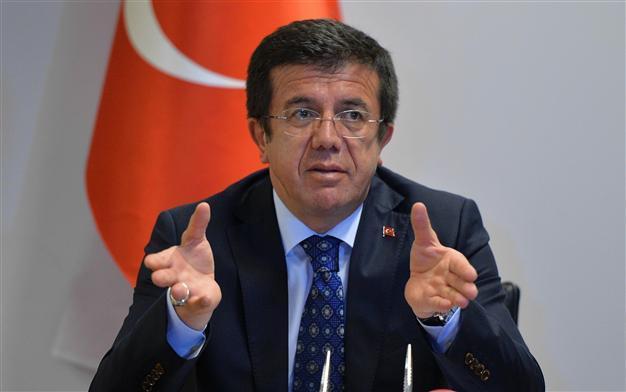Turkey’s revision of EU Customs Union to ‘pave way for resolving chronic trade problems’
ISTANBUL

AA Photo
The revision of the Customs Union between the EU and Turkey will provide an opportunity for the parties to overcome chronic problems such as visa issues and transport quotas, as well as enabling Turkey to build a solid foundation for new Free Trade Agreements (FTAs) that are becoming more important in EU trade policy, the Economic Development Foundation (IKV) in a note on May 13.“The experiences to be gained from the revision negotiations will be key for Turkey to take part in the trade arena of the future. They will therefore help Turkey to take part in the ongoing Transatlantic Trade and Investment Partnership [TTIP] negotiations between the EU and the U.S.,” it added.
The increasing momentum of the new generation FTAs in the EU’s trade policy and Turkey’s exclusion from decision-making mechanisms have created negative impacts on Turkey’s trade relations, the note stated.
“More importantly, TTIP, which has a potential to redefine the rules in the global economic system, will negatively affect Turkey’s trade balance as well as decreasing Turkey’s competitive power in the U.S. market vis-à-vis the goods produces in the EU. Besides, Turkey will have to act according to new rules and regulations for trade in goods and services as well as investments in the EU and the U.S. market, which are extremely important for Turkey’s foreign trade. Under these circumstances, revising the Customs Union is essential for Turkey to be prepared for such a major change in the global economic system,” the IKV noted.
The Memorandum of Understanding (MoU) regarding the revision of the Customs Union between Turkey and the EU was signed in Brussels on May 12.
The IKV described this as a new “cornerstone” in Turkey-EU relations.
“We, as the IKV, consider the agreement on revising the Customs Union - which is among the main cornerstones of relations between Turkey and the EU since its entry into force on Jan. 1, 1996 - as a positive development. We also wish to see such a step, taken on the 10th anniversary of Turkey-EU accession negotiations, have remarkable contributions to the accession process,” the IKV said.
It also added that it would be reasonable to expect that the earliest time for beginning negotiations on revising the Customs Union will be 2016.
Following the signing of the MoU, the EU will start developing its negotiation stance and the impact analysis report prepared by the European Commission will be shared with EU member states. After receiving the opinions of the member states on the impact analysis, the negotiation stance will be developed and the EU Council will delegate negotiation authority to European Commission. After the delegation of the authority, negotiations between Turkey and the EU on revising the Customs Union are expected to start in 2016.
















